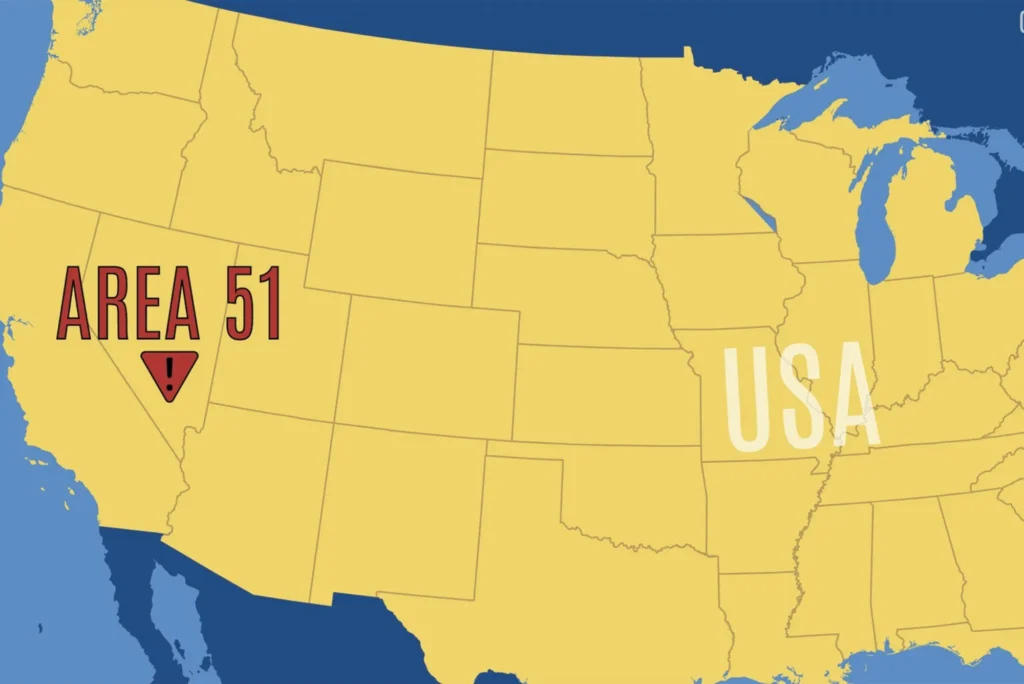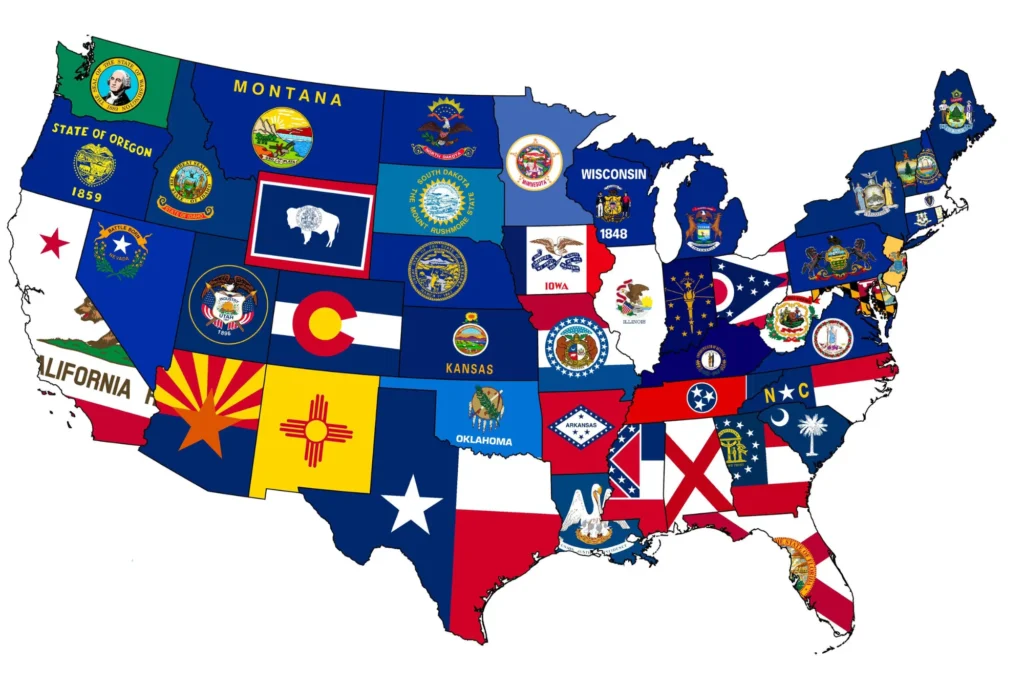The concept of State 51 USA has intrigued many for decades. People have wondered if the United States will ever expand its borders and allow a new state to join the union. But is State 51 USA just a dream, or is it possible for a new state to be added? Let’s explore the history, discussions, and future possibilities surrounding this intriguing topic.
What is State 51 USA?
The term “State 51 USA” refers to a hypothetical 51st state that would become part of the United States. While the country has 50 states currently, there has been ongoing speculation and discussion about whether new territories or regions could gain statehood. This debate has been fueled by the desire for independence, representation, and a place within the federal system for various U.S. territories.
History of U.S. Expansion and Statehood
The United States has a rich history of territorial expansion. From the original 13 colonies, the U.S. expanded westward, incorporating numerous territories, some of which later became states. The last state to join the union was Hawaii in 1959, which became the 50th state. Since then, no new state has been added, though several territories remain under U.S. control, such as Puerto Rico and Washington, D.C.
Could Washington, D.C. Become State 51 USA?

One of the most discussed candidates for State 51 USA is Washington, D.C. The District of Columbia is the nation’s capital, but it does not have full voting representation in Congress. Many residents and politicians advocate for Washington, D.C. to be granted statehood to provide equal representation to its citizens.
Supporters argue that Washington, D.C.’s residents pay federal taxes, serve in the military, and contribute to the country in numerous ways, but they are denied the same political rights as those living in states. If Washington, D.C. were granted statehood, it would likely be a front-runner for State 51 USA.
Could Puerto Rico Become State 51 USA?
Puerto Rico, a U.S. territory, has long been a contender for State 51 USA. The residents of Puerto Rico are U.S. citizens, but they do not have full representation in Congress. They also lack the right to vote in presidential elections, despite being affected by U.S. policies. Over the years, there have been several referendums in Puerto Rico, where residents have voted on whether to seek statehood.
In recent years, the movement for Puerto Rican statehood has gained traction, with some arguing that it’s time for the territory to become the 51st state. Others oppose the idea due to concerns about political and cultural differences, but the push for Puerto Rican statehood continues.
What Are the Requirements for Statehood?
Becoming a state is not a simple process. It involves several steps and requirements, both legal and political. To achieve statehood, a territory must meet certain criteria set out in the U.S. Constitution and by Congress. Here are some of the key requirements:
- Population Size: A territory must have a sufficient population to be considered viable for statehood. This ensures that the new state will be able to participate meaningfully in the federal system.
- Government Structure: A territory seeking statehood must have a stable and functioning government. This includes establishing institutions like a constitution, legislature, and judicial system.
- Support from Congress: Congress must pass a bill granting the territory statehood. This requires a majority vote in both the House of Representatives and the Senate.
- Presidential Approval: After Congress approves the statehood bill, the president must sign it into law for it to take effect.
The Debate Around Statehood: Pros and Cons
The idea of adding a State 51 USA sparks significant debate. Advocates argue that it would promote equality, enhance representation, and further integrate U.S. territories into the broader political system. On the other hand, opponents raise concerns about the potential political and economic implications of adding a new state. Here are some of the key arguments on both sides:
Pros of Statehood
- Equal Representation: Statehood would provide residents of the new state with full representation in Congress, including voting rights in both the House of Representatives and the Senate.
- Political Power: A new state would contribute electoral votes to presidential elections, enhancing the political power of its citizens.
- Economic Opportunities: Statehood could provide economic benefits, including greater access to federal funding and development programs.
Cons of Statehood
- Political Shifts: Some argue that adding a new state could shift the political balance in Congress. Opponents fear that this could lead to a dilution of political power in existing states.
- Cultural Differences: Incorporating a new state with unique cultural and historical characteristics could lead to tensions or challenges in governance.
- Cost and Logistics: The logistical challenges of incorporating a new state into the union, including infrastructure, education, and healthcare systems, could be overwhelming.
How Likely Is It That a 51st State Will Join the U.S.?
The possibility of State 51 USA depends on several factors. The political climate, the will of the people in potential territories, and the composition of Congress all play critical roles in determining whether a new state could join the union. Historically, the process of admitting new states has been slow, and the issue is still under debate today.
While Washington, D.C. and Puerto Rico are the most discussed territories for statehood, other U.S. territories, such as Guam, the U.S. Virgin Islands, and American Samoa, have also been mentioned in discussions about potential new states.
The Political Implications of State 51 USA
Adding a 51st state would have a profound impact on U.S. politics. Each new state brings a new delegation to Congress, influencing the balance of power between political parties. States have electoral votes, which determine the outcome of presidential elections. For this reason, some politicians argue that the decision to add a new state should not be taken lightly.
The Future of State 51 USA

As of now, it’s unclear whether State 51 USA will ever become a reality. While the idea of adding a new state to the union has gained support in some quarters, political opposition remains strong. Whether the U.S. will ever see a 51st state remains to be seen, but the possibility is still an intriguing topic of debate.
Table: U.S. Territories and Their Statehood Status
| Territory | Current Status | Statehood Status | Population Estimate |
|---|---|---|---|
| Washington, D.C. | Federal District | Potential Candidate for Statehood | 700,000+ |
| Puerto Rico | U.S. Territory | Debate on Statehood Ongoing | 3.2 million |
| Guam | U.S. Territory | No Plans for Statehood | 170,000+ |
| U.S. Virgin Islands | U.S. Territory | No Plans for Statehood | 100,000+ |
Frequently Asked Questions (FAQs)
1. Can Washington, D.C. become the 51st state?
Yes, Washington, D.C. is a leading contender for State 51 USA. Many advocates argue for D.C. statehood due to the lack of full representation in Congress.
2. Why is Puerto Rico not a state?
Puerto Rico has held several referendums on statehood. While some Puerto Ricans favor statehood, others are concerned about maintaining the island’s unique identity.
3. What territories are considered for statehood?
In addition to Washington, D.C. and Puerto Rico, other U.S. territories like Guam and the U.S. Virgin Islands have been discussed as potential candidates for statehood.
4. What is the process of becoming a state?
A territory must meet certain requirements, including having a sufficient population and government structure, before Congress can approve a bill for statehood. The president must then sign it into law.
5. Could State 51 USA change U.S. politics?
Yes, adding a new state would influence the political landscape by increasing the number of electoral votes and Congressional representatives.
